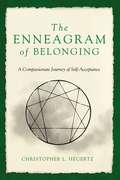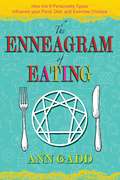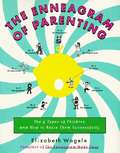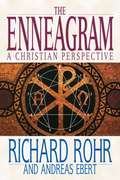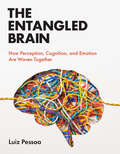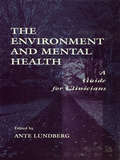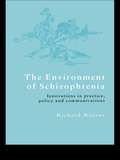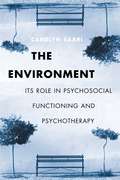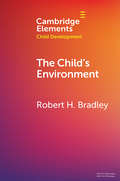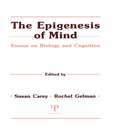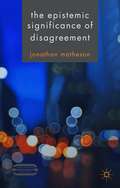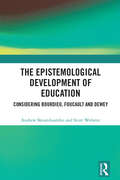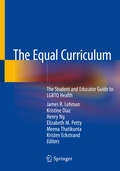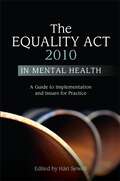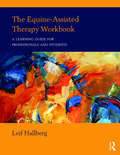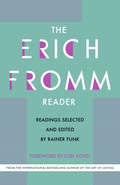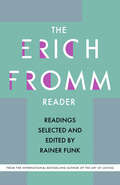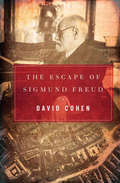- Table View
- List View
The Enneagram of Belonging: A Compassionate Journey of Self-Acceptance
by Christopher L. HeuertzFor the Enneagram enthusiast looking to deepen their transformation, The Enneagram of Belonging offers an enlightening, enriching path forward. eBook EXCLUSIVE: 45+ COLOR illustrations to provide greater depth of understanding. Many have discovered the Enneagram to be a powerful tool for self-understanding, yet knowing ourselves doesn't necessarily mean we accept ourselves. Most of us tend to curate the personality of our type: leading with the traits we perceive as positive and sidelining the traits that cause us shame. But what if it all belonged? Rather than furthering our own fragmentation, what if we dared to make peace with the whole of who we are with bold compassion? The Enneagram of Belonging is your guide to this essential journey.While most contemporary Enneagram books stop at the descriptions of the nine types, Enneagram teacher and The Sacred Enneagram bestselling author Chris Heuertz uncovers the missing link in our journey of living into our true self: radical self-compassion that can bring us back to belonging.Rather than get stuck on stereotypes or curated personality, Heuertz proposes we develop an honest relationship with our type, confronting our "inner dragons," practicing self-compassion, and thereby coming to fully belong to ourselves--and, ultimately, to love itself.In this in-depth examination of the Enneagram of Personality, you will discover:A fresh, compassionate way of understanding your childhood wound, which Heuertz reframes as your Kidlife CrisisYour unique subtype and how this colors your dominant type, plus how to work with your Enneagram instinctPractical insight to help you find freedom from your type's Passions and FixationsYour personalized path back to belonging, as you come home to your true self. . . and much more.As a masterful mapmaker and trailblazer of grace, Heuertz casts a vision for how we can create a better world. The truth is how we treat ourselves is how we treat others, so let's start with compassion, and let this outflow into our relationships, communities, and world.
The Enneagram of Eating: How the 9 Personality Types Influence Your Food, Diet, and Exercise Choices
by Ann GaddA guide to using your Enneagram personality type to understand your approach to eating, dieting, and exercise • Shows how the Enneagram system of personality types can explain your relationship to food, emotional triggers and childhood patterns around eating, food choices, best methods for weight loss or gain, possible addictions, love (or not) for entertaining, and the right exercise method to keep you motivated • Includes an Enneagram food-personality test and explains how understanding your Enneagram type allows you to alter your subconscious programming and become not only physically, but emotionally healthier • Provides examples of healthy and unhealthy expressions of each personality type’s relationship to food and exercise Have you ever wondered why some people seem to adore food, while others find eating simply a need? Why some people just love to work out and others absolutely abhor anything to do with physical exercise? Why some love entertaining, while others would rather spend a quiet evening alone? In The Enneagram of Eating, Ann Gadd reveals how the well-known Enneagram system of personality types can explain your relationship to food and exercise. Including an easy Enneagram food-personality test to find your type, she devotes a full chapter to each of the 9 personality types. She provides an understanding of each type’s emotional eating triggers, including the emotional wounds and childhood patterns that formed them, what exercise regime will keep you motivated, why you entertain the way you do (or don’t), and the best methods for weight loss or gain. The author examines how we view our bodies, how we deal with food and eating, our behaviors when dining out or hosting a dinner party, possible addictions, and where our enthusiasm (or lack thereof) for exercise originates. Stressing how our emotional health affects our physical selves, the author provides examples of healthy and unhealthy development within each type. Gadd shows how knowing how each type reacts around food will make it easier for us to alter our subconscious programming and become not only physically, but emotionally healthier. Offering fascinating insight into our subconscious attitudes toward food, she aims to inspire you to become more aware of your approach to eating in general, so you can develop healthier and happier ways of being.
The Enneagram of Parenting
by Elizabeth WageleElizabeth Wagele, coauthor of The Enneagram Made Easy and Are You My Type, Am I Yours?, offers the first practical guidebook for parents -- packed with her delightful cartoons -- on how the Enneagram can help to understand and work with children's personality traits and behavioral patterns more effectively and creatively. Using her expertise in making the Enneagram accessible through simple text and zany, informative cartoons, Wagele shows parents how to be flexible and compassionate, willing and eager to recognize the unique potential of every child and to respond to and nurture each child appropriately.
The Enneagram: A Christian Perspective
by Richard Rohr Andreas EbertRichard Rohr and Andrea Ebert's runaway best-seller shows both the basic logic of the Enneagram and its harmony with the core truths of Christian thought from the time of the early Church forward.
The Entangled Brain: How Perception, Cognition, and Emotion Are Woven Together
by Luiz PessoaA new vision of the brain as a fully integrated, networked organ.Popular neuroscience accounts often focus on specific mind-brain aspects like addiction, cognition, or memory, but The Entangled Brain tackles a much bigger question: What kind of object is the brain? Neuroscientist Luiz Pessoa describes the brain as a highly networked, interconnected system that cannot be neatly decomposed into a set of independent parts. One can&’t point to the brain and say, &“This is where emotion happens&” (or any other mental faculty). Pessoa argues that only by understanding how large-scale neural circuits combine multiple and diverse signals can we truly appreciate how the brain supports the mind. Presenting the brain as an integrated organ and drawing on neuroscience, computation, mathematics, systems theory, and evolution, The Entangled Brain explains how brain functions result from cross-cutting brain processing, not the function of segregated areas. Parts of the brain work in a coordinated fashion across large-scale distributed networks in which disparate parts of the cortex and the subcortex work simultaneously to bring about behaviors. Pessoa intuitively explains the concepts needed to formalize this idea of the brain as a complex system and how to unleash powerful understandings built with &“collective computations.&”
The Entertainment Functions of Television
by Percy H. TannenbaumFirst published in 1980. Routledge is an imprint of Taylor & Francis, an informa company.
The Entrepreneurial Personality: A Social Construction
by Elizabeth Chell David E. Wicklander Shane G. Sturman L. Wayne HooverIs there such a thing as an 'entrepreneurial personality'? What makes someone an entrepreneur is a question that has intrigued the lay person and the scholar for many years, but can such a personality be identified or is it simply a socially constructed phenomenon? Elizabeth Chell pursues an alternative line of argument: to show that the entreprene
The Environment and Mental Health: A Guide for Clinicians
by Ante LundbergEnvironmental illness is a concept of growing concern to all health professionals. Patients with problems presumably caused by sick buildings, electromagnetic fields and hypersensitivity to chemicals--to name a few--are often referred to psychologists, psychiatrists, and other counselors. The battery worker with fatigue, headaches, abdominal pain and an elevated lead level...the assembly worker with pain and numbness in her hand and delayed median nerve conduction...the patient who develops typical contact dermatitis after working with epoxies..., these are straightforward cases. But they are in the minority. In many cases, needy, demanding, and difficult patients present complex and challenging psychological issues. Practitioners often lack the training or wisdom to handle these issues effectively. We know that exposure to lead, mercury, and PCBs affect psychological development and behavior; we know much less about the effects of thousands of other chemicals in the environment. In addition, global climate change, social disruption, and the spread of infections will--in the near future--expose people to novel environmental threats. Symptoms caused by toxins can overlap those caused by fear, stress, and depression, and the clinical picture can mimic a variety of other mental disorders. On the other hand, the natural environment can also be a healer. Research shows that hospital stays are shortened and the need for pain medication reduced for patients exposed to nature, even in images, or to the company of animals. Nursing home patients live longer if allowed to keep pets, and one controlled study shows that caring for animals reduces disruptive behavior in even the most difficult ADD children. This book offers the first overview of the many ways the environment can affect mental health and illness. It will prove to be an important and valuable resource for physicians in psychiatry, public health, and environmental medicine; for clinical and counseling psychologists and social workers; and for environmental researchers and advocates worldwide.
The Environment of Schizophrenia: Innovations in Practice, Policy and Communications
by Richard WarnerThere is now a body of evidence suggesting that the occurrence and course of schizophrenia are affected by a variety of environmental factors. The Environment of Schizophrenia draws upon our knowledge of these factors in order to design innovations that will decrease its incidence and severity, while enhancing the quality of life for sufferers and their relatives.Examining environmental forces operating at the individual, domestic and broad societal levels, Richard Warner proposes feasible interventions such as:* education about obstetric risks* marketing effective psychosocial treatments* business enterprises set up to employ people with mental illness* cognitive-behavioral therapy for psychosisThe Environment of Schizophrenis suggests practical ways to create a better world for those who suffer from this serious illness and for those who are close to them. It will prove fresh and stimulating reading for mental health managers and policy makers, as well as psychiatrists, clinical psychologists, mental health advocates, and communications specialists.
The Environment: Its Role in Psychosocial Functioning and Psychotherapy
by Carolyn SaariChallenging Freud's assumption that an individual first develops intrapsychically and is only later confronted with the demands of external reality, Carolyn Saari posits that human beings initially construct a picture of their immediate environment and then construct their identities within that environment. The Environment is an argument in three parts. Part 1 discusses psychoanalytic and developmental theory, showing that while such theory has assumed the existence of an environment, it has taken for granted and therefore left unexamined its role in human development. Michel Foucault's theory of social control provides the framework for Part 2, which examines psychotherapy's capacity either to liberate or to repress the client. Part 3 relates the practical benefits and broader implications of an inclusion of environmental considerations in the practice of psychotherapy.
The Environment: Where Children Spend Time and Become Who They Are (Elements in Child Development)
by Robert H. BradleyThe focus of this Element is on the environment and how it is implicated in children's development.A very broad array of social and physical features connected to children's home life and to the neighborhoods where children live, including multiple aspects of parenting, housing characteristics and the increased prevalence of media in daily life are addressed.Attention is also given to the broader social, economic, and geographic contexts in which children live, such as neighborhood surroundings and conditions in less developed countries.There is a focus on how various aspects of the home context (e.g., crowding) and key parental characteristics, such as mental illness and substance abuse problems, affect the behavior of parents. Consideration also given to how various forms of chaos and instability present challenges for parents and children and how those circumstances are implicated in both children's development and caregiver behavior.
The Environmental Psychology of Prisons and Jails
by Richard E. WenerThis book distils thirty years of research on the impacts of jail and prison environments. The research program began with evaluations of new jails that were created by the US Bureau of Prisons, which had a novel design intended to provide a non-traditional and safe environment for pre-trial inmates and documented the stunning success of these jails in reducing tension and violence. This book uses assessments of this new model as a basis for considering the nature of environment and behavior in correctional settings and more broadly in all human settings. It provides a critical review of research on jail environments and of specific issues critical to the way they are experienced and places them in historical and theoretical context. It presents a contextual model for the way environment influences the chance of violence.
The Epigenesis of Mind: Essays on Biology and Cognition (Jean Piaget Symposia Series)
by Susan Carey Rochel GelmanReflecting the focus of a Jean Piaget Symposium entitled Biology and Knowledge: Structural Constraints on Development, this volume presents many of the emergent themes discussed. Among these themes are: Structural constraints on cognitive development and learning come in many shapes and forms and involve appeal to more than one level of analysis. To postulate innate knowledge is not to deny that humans can acquire new concepts. It is unlikely that there is only one learning mechanism, even if one prefers to work with general as opposed to domain-specific mechanisms. The problems of induction with respect to concept acquisition are even harder than originally thought.
The Epistemic Benefits of Disagreement (Studies in Applied Philosophy, Epistemology and Rational Ethics #51)
by Kirk LougheedThis book presents an original discussion and analysis of epistemic peer disagreement. It reviews a wide range of cases from the literature, and extends the definition of epistemic peerhood with respect to the current one, to account for the actual variability found in real-world examples. The book offers a number of arguments supporting the variability in the nature and in the range of disagreements, and outlines the main benefits of disagreement among peers i.e. what the author calls the benefits to inquiry argument.
The Epistemic Significance of Disagreement
by Jonathan MathesonDiscovering someone disagrees with you is a common occurrence. The question of epistemic significance of disagreement concerns how discovering that another disagrees with you affects the rationality of your beliefs on that topic. This book examines the answers that have been proposed to this question, and presents and defends its own answer.
The Epistemological Development of Education: Considering Bourdieu, Foucault and Dewey
by Scott Webster Andrew SkourdoumbisThis book documents the political and economic ramifications of the policy impetus for a ‘science of education’ and what this means for classroom teachers, their teaching practices and for the field of education. In a critical exploration of current research and policy articulations of the purposes of education, with attention given to Australia, the UK and the USA, this book delineates the evaluative mechanisms involved in the strategic science as method adoption of accountability, competitiveness and test-driven criteria used in major education policy. It brings together the disciplines of sociology and philosophy by drawing on the theoretical insights of Michel Foucault, Pierre Bourdieu and John Dewey. In addition, the book argues for the deliberate use of the theoretical in education and is against the contemporary unquestioning advocacy that often accompanies a narrowly defined master narrative of a science of education. This book will be of special interest to post-graduate students as source material in general education courses and is also intended for academics with an interest in educational theory/philosophy and the sociology of education.
The Equal Curriculum: The Student and Educator Guide to LGBTQ Health
by Kristen Eckstrand James R. Lehman Kristine Diaz Henry Ng Elizabeth M. Petty Meena ThatikuntaThis first-of-its-kind textbook marks a revolutionary effort to reform medical education nationally by providing a comprehensive, high-quality resource to serve as a foundation for lesbian, gay, bisexual, transgender, and queer (LGBTQ) health education across multiple disciplines. Addressing the decades-long unequal weight of medical education generally offered about the care of LGBTQ people, The Equal Curriculum was created to advance clinicians' competencies in optimizing the health of LGBTQ people. This textbook is designed to be integrated into health sciences curricula and offers pointed strategies to evaluate the integration of LGBTQ health topics. Starting with a brief overview, chapters 1 through 4 cover general content that is highly relevant to all health professionals working with LGBTQ people. Chapters 5 through 12 focus on specific patient populations and clinical specialties, and chapters 13 and 14 cover special topics. Key points in each chapter are highlighted to aid in the comprehension, and case vignettes are provided throughout the textbook, allowing learners to apply the content to clinical scenarios in order to evaluate how the application of relevant knowledge may impact health outcomes. Questions similar to National Board of Medical Examiners (NBME) style are provided in most chapters to assist in the application of content. As major addition to the clinical literature, The Equal Curriculum: Student and Educator Guide to LGBTQ Health should be of great interest to health sciences instructors, medical students in their preclinical and clinical phases, and trainees from other disciplines, such as physician assistants, nurses, social workers, and public health professionals.
The Equality Act 2010 in Mental Health: A Guide to Implementation and Issues for Practice
by Scott Melba Wilson Sarah Carr Cheryl Brodie Barbara Vincent Sue Waterhouse Eleanor Hope Tony Jameson-Allen Marcel Vige Peter Gilbert Hári Sewell Jo Honigmann DurairajThe Equality Act 2010 in Mental Health provides a critical guide to the Act: what it means for mental health services and how it should be implemented. It addresses each of the nine characteristics protected by the Act in turn, examining the research and practice issue associated with each and offering positive guidance. Contributors also highlight the broader issues associated with achieving equality in mental health, including conflicts between different forms of discrimination, the impact of budget cuts and the issue of inequality in wider society and how it relates to the mental health services. Finally, the book tackles organisational change and the implications for management practice, organisational structures and staff training. This book will be a valuable resource for those involved in providing mental health services, including managers and frontline workers across health and social care.
The Equine-Assisted Therapy Workbook: A Learning Guide for Professionals and Students
by Leif HallbergThe Equine-Assisted Therapy Workbook gives readers the tools they need to increase professional competency and personalize the practical applications of equine-assisted therapy. Each chapter includes thought-provoking ethical questions, hands-on learning activities, self-assessments, practical scenarios, and journal assignments applicable to a diverse group of healthcare professionals. The perfect companion to The Clinical Practice of Equine-Assisted Therapy, this workbook is appropriate for both students and professionals.
The Erich Fromm Reader
by Erich Fromm Rainer Funk Joel KovelFromm's basic idea was to look at the individual as a social being and to look at society as an ensemble of many individuals who have not only common ideas and convictions based on a common practice of life but also a common psychic structure. With his concept of "social character" he created a new interdisciplinary thinking presented in this reader. The Erich Fromm Reader exhibits the true genius of an original thinker in seeing the connections between overlapping knowledge from many different fields. Here interdisciplinarity is not only a lip service but the impact of Erich Fromm's unique social psychological notion.
The Erich Fromm Reader: Readings Selected and Edited by Rainer Funk
by Erich Fromm&“Fromm crossed the boundaries of traditional disciplines to expound his view on the alienation of man in an increasingly technological world.&” —Newsweek Erich Fromm&’s basic idea was to look at the individual as a social being, and to look at society as an ensemble of many individuals who have not only mutual ideas and convictions based on a common practice of life, but also a shared psychic structure. With his concept of &“social character,&” Fromm created a new interdisciplinary thinking presented in this compendium.The Erich Fromm Reader exhibits the true genius of an original thinker in seeing the connections between overlapping knowledge from many different fields. Here, interdisciplinarity is not only a lip service but the impact of Erich Fromm&’s unique social psychological notion.
The Erotic
by Lou Andreas-SalomePsychoanalyst and author Lou Andreas-Salome may seem to be a figure remote from us, one belonging to a pre-1914 Europe, but in many ways, she is our contemporary. She travelled in a highly romantic world as socialite, sociologist, and author. She was part of Georg Simmel's salon, the most exclusive in Berlin, frequented by elusive poet Stefan Georg, dramatist Paul Ernst, social theorist and polymath Max Weber, and Georg Lukacs, among others.Salome's unique contribution to the erotic was that she argued sexual difference ran deeper than economics and equality—the politics of Marx and the ideals of the French Revolution. For Salome, to think about women and their erotic nature, you must start with their biological and psychological difference, not their economic situation.Salome was an outstanding theorist. Her books on Nietzsche and on Rilke are major studies. The field of psychoanalysis would not have developed in the way it did without Lou Andreas-Salome. We cannot understand Freud's "rationalism" or his anti-religious sensibility without Salome's writings. This new English translation is an essential text of psychoanalysis, one that shaped the very conception of the field.
The Erotic Fire of the Unattainable: Aphorisms on Love, Art, and the Vicissitudes of Life
by Gay WalleyThe Erotic Fire of the Unattainable has a subtle narrative wherein author Gay Walley weaves love with life, art with making a living, and inspiration with the banal realities of daily life. The book shows how passion is to be found in every moment, none the least in a passion for independence. Beginning with "Why Women Fight Pirates," Walley covers such disparate topics as "The Disappointments of Infidelity," "Talk in Love," "Writers," "Work and its Punishments," "The Importance of the Argument," "The Ocean," "New York," and ends on "Deathbed."This unflinching narrative is a journey through an artist's mind, taking us outside the usual confines, to lovers and ex-husbands, traveling, solitude, money and the importance of rebellion.
The Escape of Sigmund Freud
by David CohenThe &“gripping&” true story of the founder of psychoanalysis—and how he made it out of Austria after the Nazi takeover (The Independent). Sigmund Freud was not a practicing Jew, but that made no difference to the Nazis as they burned his books in the early 1930s. Goebbels and Himmler wanted all psychoanalysts, especially Freud, dead, and after the annexation of Austria, it became clear that Freud needed to leave Vienna. But a Nazi raid on his house put the Freuds&’ escape at risk. With never-before-seen material, this biography reveals details of the last two years of Freud&’s life, and the people who helped him in his hour of need—among them Anton Sauerwald, who defied his Nazi superiors to make the doctor&’s departure possible. The Escape of Sigmund Freud also delves into the great thinker&’s work, and recounts the arrest of Freud&’s daughter, Anna, by the Gestapo; the dramatic saga behind the signing of Freud&’s exit visa and his eventual escape to London; and how the Freud family would have an opportunity to save Sauerwald&’s life in turn. &“Full of fascinating insights and anecdotes . . . Cohen draws copiously on the correspondence between Freud and [his nephew] Sam to paint a vivid picture of their complex and deeply troubled family.&” —Daily Mail &“An illuminating look at the end of the life of a giant of psychology.&” —Kirkus Reviews
The Essays Only You Can Write
by Irene PapoulisThis book offers a perspective on essay writing that spotlights a writer’s uniqueness. Resisting the perception that personal and academic writing is at odds with one another, it treats the impulse to write “personally” as potential fuel for a variety of writing purposes. The book encourages students to think like academics--pursuing their enthusiasms, trusting their ideas, and questioning their conclusions--by leading them through three main writing assignments: a personal essay, an essay based on texts, and a research essay. Each chapter offers exercises and strategies for various stages in the pre-writing, drafting, and revision processes. Freewriting; extensive attention to planning; devising a structure and order of ideas that both promote and reflect engagement with a topic; developing rhetorical awareness and knowledge of conventions; and an advocacy for expressive, socially-responsible writing--all are central elements of the text’s instruction. By acknowledging the emotions inherent in the writing process, many of which can muddle thinking--I don’t want anyone to see this; what if I make mistakes? what if the writing isn’t good? I don’t want to be critiqued; etc.--Papoulis helps beginning college writers to navigate the psychological as well as the technical roadblocks that can get in the way of their best personal and academic writing.
